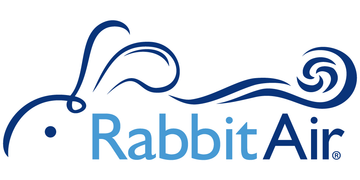
As parents, ensuring a clean and safe environment for our babies is paramount. One aspect of this is the air they breathe. With increasing concerns about indoor air quality, many parents wonder if an air purifier is a good addition to their baby's nursery. This article explores the benefits and considerations of using an air purifier in spaces where infants spend most of their time.
Understanding Air Purifiers
An air purifier is a device designed to enhance indoor air quality by capturing airborne pollutants and allergens. They typically work by drawing air through various filters that trap particles like dust, pollen, and pet dander. Some models also include activated carbon filters to capture odors and volatile organic compounds (VOCs).
The most common types of air purifiers include HEPA (High-Efficiency Particulate Air) filters, UV light purifiers, and ionizers. HEPA filters are especially effective as they can trap very small particles, whereas UV light purifiers use ultraviolet light to kill bacteria and viruses.
Ionizers release negatively charged ions that bond with positively charged particles in the air, causing them to fall out of the airspace or become trapped on a collection plate.

Air Quality and Babies
Babies are particularly sensitive to the quality of the air they breathe. Their developing respiratory systems are more vulnerable to airborne pollutants, which can include a range of substances such as dust mites, mold spores, and pet dander.
Additionally, homes in urban areas may have higher levels of pollutants from traffic and industrial activities. Poor air quality can exacerbate conditions like asthma and allergies, making it crucial to ensure a fresh and purified environment for babies. Research indicates that infants exposed to high levels of indoor pollutants are at greater risk of respiratory infections and developmental issues.
Furthermore, the World Health Organization (WHO) has identified indoor air pollution as a major health risk, particularly for young children.
Benefits of Air Purifiers for Babies
Air purifiers can play a significant role in creating a cleaner indoor environment. By trapping pollutants and allergens, these devices can reduce the amount of harmful particles in the air. For instance, HEPA filters are known to capture particles as small as 0.3 microns, which includes many common allergens and pollutants. In homes with pets, air purifiers can help capture pet hair and dander, reducing potential allergic reactions in babies.
For families living in cities, air purifiers can be particularly beneficial in reducing indoor pollution levels. Additionally, some air purifiers are equipped with activated carbon filters that can trap harmful gases and odors, providing an extra layer of protection. This can be especially useful in homes where cooking, cleaning products, or off-gassing from furniture might introduce VOCs into the air.
Considerations When Choosing an Air Purifier for a Nursery
When selecting an air purifier for a nursery, several factors need to be considered.
Firstly, the device should have a true HEPA filter to ensure it effectively traps tiny particles. Noise levels are another crucial aspect; since babies need a quiet environment for sleeping, choosing a quieter model is essential.
Maintenance requirements, such as filter replacement frequency, should also be considered to ensure the purifier remains effective over time. Additionally, safety features like a child lock and the absence of harmful emissions are important to consider. It's also worth considering the size of the nursery and the air purifier's coverage area to ensure it can effectively purify the air in the entire room.
Some models come with smart features, such as air quality sensors and automatic adjustments, which can provide added convenience and assurance that the air remains fresh and purified at all times.
Potential Downsides
Despite their benefits, air purifiers have limitations.
They are not a cure-all for indoor air quality issues and should be used along with other measures, such as proper ventilation and regular cleaning. Some models, particularly ionizers, can produce ozone, which may be harmful in high concentrations. It's essential to research and select a model that does not produce ozone or other potentially harmful byproducts.
Moreover, relying solely on an air purifier without addressing other sources of indoor pollution can limit its effectiveness. It's important to regularly clean surfaces, vacuum with a HEPA-filtered vacuum cleaner, and control humidity levels to prevent mold growth. Additionally, some air purifiers can be quite costly, and the ongoing expense of replacing filters should be factored into the decision.

Expert Opinions and Research
Studies and expert opinions on air purifiers indicate that while they can significantly improve indoor air quality, their effectiveness varies based on the type of pollutants present and the specific model used.
For example, a study by the American Academy of Pediatrics highlights that air purifiers can be beneficial for children with asthma or allergies. However, they emphasize that air purifiers should be part of a broader strategy to improve indoor air quality, including eliminating smoking and using ventilation systems.
Experts also recommend regularly monitoring indoor air quality to understand the specific pollutants in your home and choosing an air purifier that targets those contaminants effectively.
Air purifiers can offer numerous benefits for creating a cleaner and more hygienic environment for babies. By trapping airborne pollutants and allergens, these devices can help reduce the risk of respiratory issues and allergies. However, it's crucial to choose the right type of air purifier and use it alongside other measures to ensure optimal indoor air quality.




